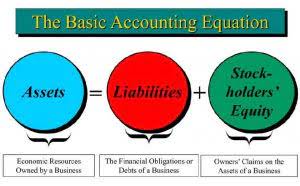
But when it comes to accounting and tax, you might wonder if you should hire a professional to help you out. How can you decide if hiring an accountant or bookkeeper is right for your small business? Before you hire your bookkeeper, you should have all your transactions together, along with how you want to account for them, either the cash-based or accrual method. You should also have a basic idea of how you want to categorize your expenses, so your bookkeeper can set it up in your accounting software. The goal is to know what you want them to handle and to make sure you have all the information available. Outlining your expenses can also give your bookkeeper an idea of what to expect each month in terms of the number of transactions.

Carefully weigh the pros and cons, and make a decision that best aligns with your business goals and resources. Outsourcing your bookkeeping is another option, and this guide on how to find the best virtual bookkeeping service can help you get the process started. This means recording transactions and saving bills, invoices and receipts so you have all the data you need to run reports. Accounting software makes it easy to store these documents and reference them in case of an accounting error or audit. This method doesn’t record invoices or your company’s outstanding bills until they’ve been paid. This is because it will determine the kind of bookkeeper you’ll hire, either an independent bookkeeping consultant or a bookkeeping firm.
Are bookkeeping and accounting different?
Not only does overworking lead to burnout, but every minute you spend on a task has a dollar equivalent. Then, using an online calculator, determine how much your time is worth, and figure out how many “dollars” you spend on bookkeeping per month. Compare your “salary” as your own bookkeeper against the price of professional how to hire a bookkeeper bookkeeping. Once you treat the time you spend bookkeeping as an actual expense in cash, you’ll have a better idea of whether you should keep doing it—or if hiring a pro is actually a bargain. In the fast-paced world of entrepreneurship, managing the finances of a small business can be a daunting task.
Many tax and accounting firms, including us, allow you to hire a bookkeeper just to train you on certain softwares and processes if you’re not comfortable doing it by yourself right away. Hiring a bookkeeper can be one of the most relieving and rewarding investments your business can make. If your business is growing and you’re at the point where your finances are becoming too overwhelming to handle on your own, a bookkeeper can provide you with these benefits and more. A good bookkeeper will solve your cash flow, delayed payables, delayed receivables, payroll management, expense tracking, tax preparation, and reconciliation problems.
How do I choose a small business bank account?
While bookkeepers maintain the financial data, accountants analyze and interpret this data for higher-level business decisions. There’s good news for business owners who want to simplify doing their books. Business owners who don’t want the burden of data entry can hire an online bookkeeping service. These services are a cost-effective way to tackle the day-to-day bookkeeping so that business owners can focus on what they do best, operating the business.
- We’ve put together this guide to help you understand the basics of small business bookkeeping.
- Small businesses also manage their own accounts receivable to make sure they get paid on time for goods and services that have already been bought or rendered.
- Some sectors may require different records or requirements than others, so you should look for a bookkeeper with a great amount of knowledge on your industry.
- While it can be easy to find a bookkeeper for where your business is right now, you also want to know if your bookkeeper will be able to handle additional tasks in the future.
- This is a highly recommended method because it tells the company’s financial status based on known incoming and outgoing funds.
Bookkeepers can help you create financial statements, such as profit and loss statements and balance sheets, which will give lenders a clear picture of your business’s financial health. In addition, bookkeepers can offer advice on improving your financial management to make your business more attractive to potential lenders. They can also help you manage your finances so that you stay within your budget and avoid defaulting on your loan. If you are a small business owner seeking financing, it is worth considering hiring a small business bookkeeper. Beyond basic data entry, a keen bookkeeper analyzes your numbers to provide custom reporting and insights. This includes preparing key financial statements, tracking business metrics over time, providing cash flow forecasts, and analyzing profit margins.
You feel like you don’t have time
Come tax season, your bookkeeper will already have your financial house in order – serving to prevent potential fines for late delivery or incorrect entries. Hiring a new bookkeeper – or any other employee for that matter – doesn’t have to be a complicated process. Traditional ways of onboarding are effective, but we also have to consider our newer ways of hiring new employees in order to create a much better and https://www.bookstime.com/ more informed decision. Bookkeepers can not only help you keep better records, they can also ultimately help to improve your tax return. With them, taxes will be a breeze, and you will have a dependable helping hand to avoid audit expenses and inadequate records. In addition, you can also seek your bookkeeper’s opinions when thinking of whether it’s a good idea to invest, expand, or get a loan for the business.
- Unlike what most people think, a bookkeeper is quite different from an accountant.
- The number of accounts you’ll be tracking—and the frequency of transactions—may affect this.
- That’s why it’s important to find a bookkeeper who knows what they’re doing.
- This makes it easy for you to know the state of your accounts, it is also easier to generate financial reports that let you know how you are doing financially.
- After an interview with a bookkeeper, ask yourself these questions, and choose someone you can trust.
- It’s kind of like a crystal ball that shows you the future of your bank account.

